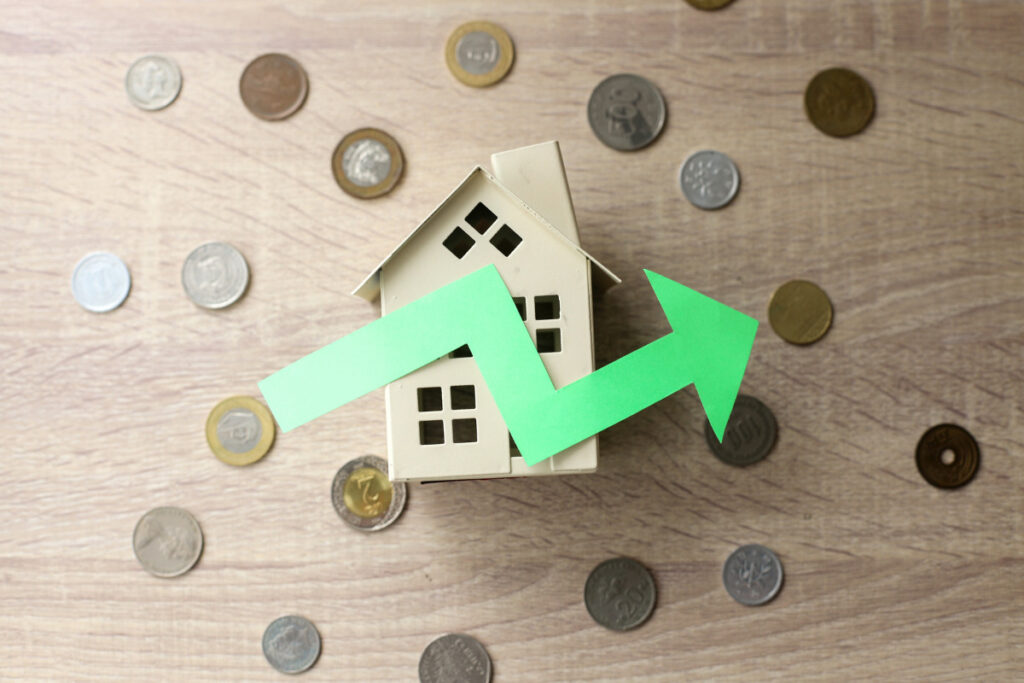Introduction
Homeowners are increasingly adopting solar energy as a sustainable and cost-effective solution. Understanding the impact of solar panels on property value becomes increasingly important.
This blog will discuss how appraisers evaluate solar panel systems’ worth. Essential factors affecting a home’s value with solar panels will also be explored.
Understanding Solar Panels And Their Value
Solar panels convert sunlight into energy and are becoming increasingly popular due to their environmental and financial benefits.
How Solar Panels Work
Solar panels, also known as photovoltaic (PV) systems, harness sunlight and convert it into usable electrical energy for your home. The conversion process starts when solar cells absorb photons, creating an electric current.
A residential solar installation includes multiple panels on rooftops for sun exposure. A complete system has an inverter, wiring, mounting hardware, and sometimes a battery storage solution for excess energy.
Homeowners often choose grid-tied systems, relying on utility electricity, when solar generation falls short. Net metering policies credit surplus power fed back into the grid.
The Cost And Lifespan Of Solar Panels
The cost and lifespan of solar panels are two essential factors that property owners should consider when investing in this renewable energy source. Solar panel systems can vary widely in price, depending on factors such as the size of the system, the quality of materials used, and installation costs.
On average, residential solar panel systems can cost between $15,000 to $25,000 before tax credits and incentives are applied.
High-quality solar panels typically carry a 25-year warranty but can last up to 40 years with good maintenance. According to a Berkeley Lab study, homes with solar power see a resale value increase of about $5,911 for each kW installed. This investment provides substantial savings on energy bills, up to $600 per year in electricity costs alone. Additionally, Zillow‘s research found that homes with solar panels sold for approximately 4.1% more than comparable properties without them in 2018.
Financing Options For Solar Panels
Solar panel financing is more accessible, encouraging clean energy adoption. Homeowners can use cash, loans, leases, or power purchase agreements (PPAs) for installation.
For instance, paying outright with cash results in higher ROI with immediate savings and increased home value. Alternatively, securing a loan allows for spreading the cost and reaping federal tax credits and state incentives.
Leasing programs let owners install solar panels without upfront costs via long-term contracts with providers who retain ownership. Providers may be responsible for maintenance and incentives tied to the system’s performance.
Finally, PPAs let homeowners enjoy reduced electricity rates without initial capital outlay. However, it sometimes restricts access to valuable tax credits or rebates linked to solar panel installations.

Methods Used By Appraisers To Value Solar Panels
Appraisers use three main methods to value solar panels: the cost approach, sales comparison approach, and income approach; each method considers different factors when determining the value of a property with solar panels.
Cost Approach
One of the three valuation approaches appraisers to use to value solar panels is the Cost approach. This method involves calculating the total cost of purchasing and installing the solar panel system, including labor and materials.
The appraiser then adjusts the value of a home based on this estimated cost, as well as potential energy savings from using solar power. For example, if a homeowner has invested $30,000 in their solar panel installation and it’s projected to save them $5,000 annually on electric bills for 10 years (totaling $50,000), an appraiser may increase their home’s value by that amount or a portion thereof.
Sales Comparison Approach
The Sales Comparison Approach is one method appraisers use to evaluate the impact of solar panels on a property’s value. This approach compares the recently sold prices of homes with similar characteristics, such as size and location, but with and without solar panels in place.
By analyzing these comparable sales, appraisers can determine the added value solar panels bring to a home. For example, if two identical homes were sold at different prices just because one installed solar panels, then it’s likely that those panels substantially increased their value.
While this comparison may seem straightforward, it becomes more challenging when there are few or no recent sales of homes with solar panel systems in the area for comparison purposes.
Income Approach
The income approach is a valuation method appraisers use to estimate the value of solar panels on a property based on its expected economic earnings capacity. This method considers factors such as the energy cost savings generated by the system and potential revenue streams from selling excess energy back to utilities or using renewable energy credits.
For example, if a solar panel system generates $3,000 in annual savings, an appraiser may add $30,000 to the property’s value using a 10% capitalization rate.
For residential properties, which do not generate significant amounts of income from their solar panels, appraisers often rely on comparable sales and cost approaches.

Factors Affecting The Value Of Homes With Solar Panels
Factors that can affect the value of homes with solar panels include the age and condition of the panels, as well as their size, wattage, and location about the house.
The Age And Condition Of The Panels
The age and condition of solar panels are crucial factors affecting the value of a home with solar panels. Newer, well-maintained solar panel systems provide more energy efficiency and have a longer lifespan than older systems, contributing to higher home values.
For instance, if you installed a 10-year-old photovoltaic (PV) system that is no longer producing the same output as when it was new, its impact on your property’s resale value will be lower than someone who has recently invested in brand-new equipment.
Factors like warranties, maintenance records, and upgrades over time make your property stand out from others regarding appraisal value.
The Size And Wattage Of The Panels
The size and wattage of solar panels are important factors that affect the value of homes with solar panel installations. Generally, larger systems produce more energy and generate higher savings, making the property more attractive to potential buyers.
However, it’s not just about having a bigger system; it must also be sized appropriately to match the homeowner’s energy needs. A good rule of thumb is to install one solar panel per 100 square feet of roof space.
According to a study by Zillow, homeowners with larger solar panel systems (around 3-4 kilowatts) sold their homes for around $15,000 more than those without any installed system.
The Location Of The Home
The location of your home is one factor that can impact the value of your property with solar panels. Homes in areas with high electricity rates and ample sunlight tend to have higher appraisals for solar installations.
For example, a home in sunny California would likely have a higher value than a similar-sized house in cloudy Seattle.
It’s important to note that location plays a role in determining appraisal values for homes with solar panels, but it’s not the only factor at play. The size and condition of the system, along with any energy-efficient upgrades made throughout the house, also contribute towards valuation.

The Role Of Home Appraisers In Valuing Solar Panels
Home appraisers are crucial in determining the value of solar panels installed on residential properties. They use specialized valuation methods to assess the contribution value of these renewable energy systems.
What Appraisers Look For In A Solar Panel System
Appraisers assessing the value of solar panel systems in homes look for several key factors. First, they consider the age and condition of the panels, as well as their size and wattage.
The home’s location is also considered since it can impact energy savings and the availability of incentives. Additionally, appraisers assess how much energy a solar panel system generates compared to the homeowner’s needs.
Lastly, documentation regarding installation records, energy savings estimates, and incentive programs is essential in getting an accurate appraisal value for your home with solar panels.
Challenges In Valuing Solar Panels
Valuing solar panels can be challenging due to limited solar panel home sales data, varying state regulations, and the need for specialized appraisers.
Limited Data On Solar Panel Home Sales
Valuing homes with solar panels is not always easy, as there is limited data on solar panel home sales. This lack of data makes it difficult to determine the value of properties equipped with solar panels, especially when there are no comparable properties to reference.
However, appraisers can use paired sale analysis to help them value such properties by comparing similar homes sold with and without solar panels installed.
Varying State Regulations On Solar Panel Installation
It is essential to know that regulations on solar panel installation differ from state to state. Some states have laws that require property owners to obtain permits before installing a solar panel system, while others do not.
Additionally, some states offer incentives or tax credits for installing solar panels, which can affect your home’s appraisal value. Understanding these regulations and their impact on your property’s value is crucial when investing in renewable energy sources like solar power.
The Need For Specialized Appraisers
Valuing homes with solar panels is not your typical appraisal assignment, as traditional methods may not accurately reflect the value of renewable energy systems. That’s why specialized appraisers are important in assessing properties with green features like solar panels.
These appraisers have undergone additional training and education on renewable energy systems to better understand their impact on home value. They also know how to break down the components of a solar panel system and how its age, condition, size, and wattage can affect pricing.

Tips For Maximizing The Appraised Value Of Homes With Solar Panels
To ensure that your property with solar panels is appraised at its highest value, keep detailed records of the installation process and energy savings, research recent sales of similar homes in your area, and consider financing options for solar panel ownership.
Keep Installation Records
It is important to keep records of solar panel installations if you want to maximize the appraised value of your home. This includes documentation showing when and how the panels were installed and any associated warranties or maintenance schedules.
By keeping these records, you can demonstrate to appraisers that your solar panel system has been properly installed and maintained, increasing its overall value.
Additionally, providing information about energy savings from installing solar panels can help increase their appraised value.
Provide Documentation Of Energy Savings
Property owners can increase the appraised value of their homes with solar panels by providing documentation of energy savings. In addition to reducing carbon emissions, solar panels can significantly lower energy bills, which can be a major selling point for prospective buyers.
Homeowners should keep track of their utility bills before and after installation and any other measures they’ve taken to conserve energy in the home. This information should be presented to appraisers or real estate agents during the valuation process.
Research Recent Sales Of Similar Homes
One effective way to maximize the appraised value of your home with solar panels is to research recent sales of similar homes in your area that also have solar panel systems.
For example, if a home without solar panels sold for $500,000 and a similar home with a solar panel system sold for $550,000, it’s reasonable to assume that the panels added around $50,000.
Providing this information to an appraiser can help support your argument for a higher appraisal value.
The Benefits Of Solar Panels For Homeowners
Homeowners who invest in solar panels enjoy numerous benefits, including lower energy bills, increased home value, and a positive environmental impact.
Lower Energy Bills
One of the biggest benefits of installing solar panels on your property is lower energy bills. By harnessing the sun’s power, homeowners can reduce their reliance on traditional sources of electricity and save money every month.
Solar panel owners can generate their own clean energy, making them less susceptible to price fluctuations in the energy market. In addition, installing solar panels could also help you qualify for financial incentives. You can apply for tax credits or rebates to offset costs and increase overall savings.

Increased Home Value
Homeowners who invest in solar panels can expect a significant increase in the resale value of their properties. Studies show that for every kilowatt of solar panels installed, an average increase of $4,020 to $5,911 in a home’s resale value.
This means that not only are homeowners able to save on energy bills and reduce their carbon footprint, but they can also potentially make a profit when it comes time to sell their property.
The amount of the increase depends on various factors such as location, type of solar panels used, and the cost of the system.
Positive Impact On The Environment
One of the significant benefits of installing solar panels in your home is their positive environmental impact. Solar power is a renewable energy source that does not emit harmful pollutants or greenhouse gases, known as contributors to climate change.
Moreover, residential solar panel systems can generate electricity without depleting natural resources such as oil and gas. This means that homes with solar panels can contribute to greater energy independence and security in their communities while supporting sustainable living practices.
Appraising Solar Panels In Different States
Valuing solar panels in real estate is not a one-size-fits-all approach. Different states have varying regulations and guidelines for solar panel installation; read more to understand how these variations can impact the valuation process.
Understanding State-specific Laws And Guidelines
Property owners must understand that solar panel installation rules and regulations vary greatly from state to state. Some states have strict guidelines on installing solar panels, while others offer incentives like tax breaks or rebates for homeowners who invest in renewable energy.
For example, some states require that all new homes be built with solar panels to promote clean energy use. In these areas, a home without solar panels may be valued lower than one with them because buyers are likely to expect them.
On the other hand, in states where solar panels aren’t as popular or incentivized, their impact on property value might not be as significant.
Fannie Mae And FHA Guidelines For Solar Panel Appraisals
When appraising homes with solar panels, it’s important to understand the guidelines set by Fannie Mae and Federal Housing Administration. These government agencies have unique property eligibility requirements for solar panel appraisals.
For instance, Fannie Mae requires that the solar panels be considered a permanent part of the home and comply with all local zoning laws.
In addition, both agencies require that the appraisal report provides a clear and detailed description of any improvements made on the property, including the solar panels.
This information is crucial in helping appraisers accurately determine the value of a property with renewable energy sources.

The Future Of Solar Panel Valuation In Real Estate
As the demand for renewable energy and sustainable living grows, solar panels will likely become an increasingly valued feature in real estate, leading to new methods of solar panel valuation and greater accuracy in appraisals.
Impact Of Changing Energy Policies And Technology
As the world becomes more focused on renewable energy, changing policies and technological advancements can significantly impact the value of solar panels in real estate.
For example, government incentives such as tax credits, rebates, and net-metering regulations can affect the cost-effectiveness of solar panel installations.
Staying informed is crucial for property owners installing or selling homes with solar panels. Working with an experienced appraiser for an accurate valuation reflecting the investment’s true value is essential.
The Potential For Increased Demand For Solar Homes
As people become more environmentally conscious and seek to reduce their carbon footprint, the demand for solar homes will likely increase. This trend could lead to an even greater appreciation of the value of solar panel-equipped homes.
Did you know that 80% of Americans believe renewable energy sources are essential for meeting our future power needs? With such high demand, solar panel systems installed on your property can give you a significant competitive advantage when you sell your home.
And if you own an electric car, you can now use EV charging stations. This will reduce your reliance on fossil fuels and help improve air quality.
Conclusion
Solar panel investment reduces energy bills, benefits the environment, and increases home value. Valuing solar panels for an appraisal is difficult due to limited data and state regulations.
Appraisers must understand solar panel operations and valuation methods. Homeowners can maximize appraised value by keeping records, providing energy savings documentation, and researching similar home sales.

FAQs
- How do home appraisers determine the value of solar panels?
Home appraisers consider several factors when valuing solar panels. The system’s age, condition, energy output, efficiency, and applicable incentives or tax credits are among these.
- Will installing solar panels increase my property value?
Installing solar panels typically adds value to a property. They can reduce future electricity costs for new homeowners while providing an eco-friendly energy source. However, this depends on location, installation quality, and overall energy needs in your specific area.
- Do all types of homes benefit from installing solar panel systems?
Solar panel systems work best year-round in areas with moderate to high sunlight exposure. For homes that meet this requirement – both old & new construction models can benefit from going green by implementing these kinds of renewable energy-related projects.
- Are there any downsides to installing a solar panel system in my home?
Solar panel systems offer benefits but also have drawbacks. These include high installation and upkeep costs. Also, the potential property value decrease without proper maintenance and associated risks like roof damage during installation.
